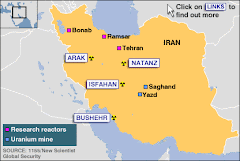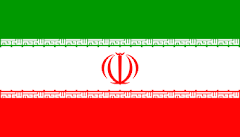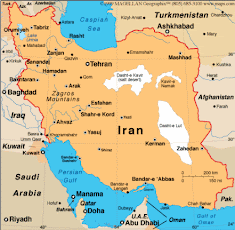
By Alistair Lyon, Special Correspondent - Analysis
TEHRAN (Reuters) - Five years on, Iran can thank the United States for unwittingly aiding its drive for regional power by ousting Saddam Hussein, one of Tehran's deadliest foes.
The U.S. military had already defeated Afghanistan's Taliban after the September 11 attacks on U.S. cities in 2001 -- with the unintended consequence of wiping out another of Iran's enemies and tilting the local balance of forces in Tehran's favor.
"The removal of these two regimes without powerful successor states benefited Iran greatly...and opened elbow room for Iran to spread its influence," said Vali Nasr, senior fellow at the Washington-based Council on Foreign Relations.
Iran cannot entirely rule out U.S. military action to destroy its nuclear sites, and its oil-reliant economy may prove vulnerable a few years hence, but for now it is riding high.
Full Coverage
This is significant because it is about nations involving with other nations.
TEHRAN (Reuters) - Five years on, Iran can thank the United States for unwittingly aiding its drive for regional power by ousting Saddam Hussein, one of Tehran's deadliest foes.
The U.S. military had already defeated Afghanistan's Taliban after the September 11 attacks on U.S. cities in 2001 -- with the unintended consequence of wiping out another of Iran's enemies and tilting the local balance of forces in Tehran's favor.
"The removal of these two regimes without powerful successor states benefited Iran greatly...and opened elbow room for Iran to spread its influence," said Vali Nasr, senior fellow at the Washington-based Council on Foreign Relations.
Iran cannot entirely rule out U.S. military action to destroy its nuclear sites, and its oil-reliant economy may prove vulnerable a few years hence, but for now it is riding high.
Full Coverage
This is significant because it is about nations involving with other nations.



No comments:
Post a Comment